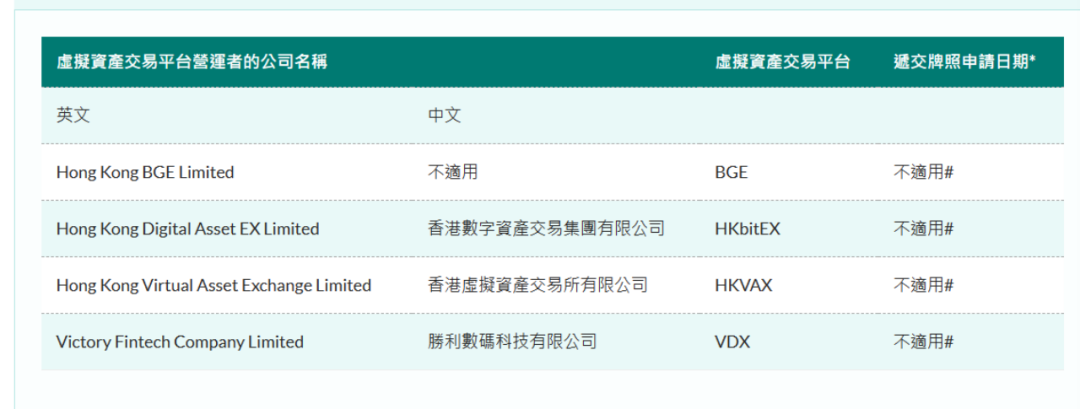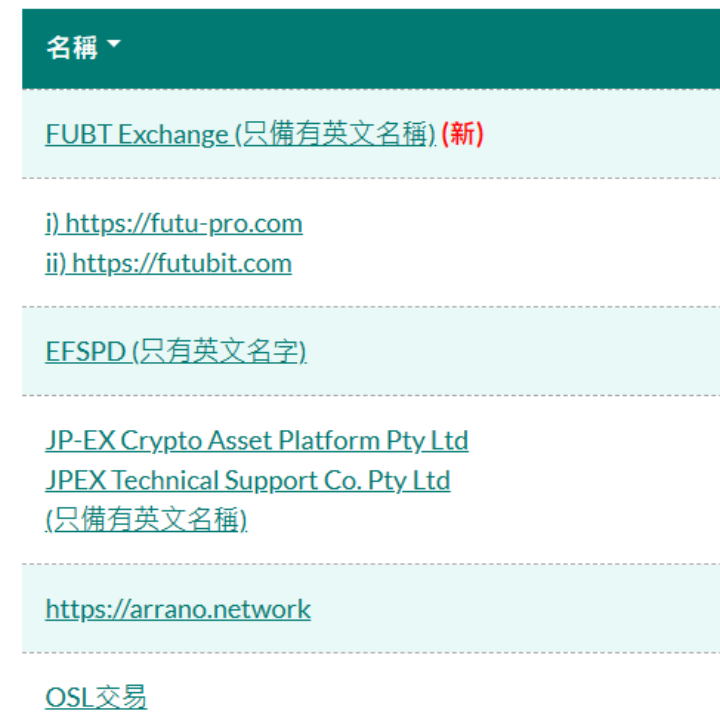

Original Title: “Xiao Sa Team | After the JPEX Case, the Hong Kong Securities and Futures Commission Can’t Sit Still…”
Just a few days ago on September 25th, the Chief Executive Officer of the Hong Kong Securities and Futures Commission (SFC), Ashley Alder, the Executive Director of the Enforcement Division, Thomas Atkinson, and the Head of the Fintech unit, Brian Lee, attended a press conference held by the SFC on issues related to virtual asset trading platforms. During the press conference, the SFC stated that it will further optimize the existing regulation of virtual asset trading to reduce the risks of cryptocurrency trading.
- Reflections on the blockchain industry after ten years What is the root cause for the long-term failure to implement industry applications?
- Do Kwon’s chat records exposed constant big news, far more than just fake transactions.
- Interview with bloXroute Flashbots opens up a path that makes it difficult for DeFi to surpass CeFi
It is widely believed in the industry that the optimization measures announced by the Hong Kong SFC during the press conference on September 25th are a response to the JPEX case. These measures also reflect further clarification and transparency in the regulation of virtual assets in Hong Kong. Today, the Xiao Sa Team will analyze the four major optimization measures proposed by the Hong Kong SFC during the press conference and the potential impact that may follow.
The Current VASP Licensing System and Related Issues in Hong Kong
Since the end of 2022, when Hong Kong began to publicly embrace virtual assets and establish itself as a global virtual asset hub, it has made a series of regulatory arrangements. In general, the current regulatory framework for virtual assets in Hong Kong incorporates virtual assets into a “licensing-based” financial regulatory system. In order to achieve the above regulatory objectives, the Hong Kong Legislative Council completed the latest revision of the “Anti-Money Laundering and Counter-Terrorist Financing Ordinance” (hereinafter referred to as the “AML Ordinance”) on December 7, 2022. The AML Ordinance tailored a licensing system for virtual asset service providers in Hong Kong, which officially came into effect on June 1st this year. According to the AML Ordinance, virtual asset businesses operating in Hong Kong must hold the corresponding virtual asset license and traditional financial regulatory license (also known as the “dual licensing” system). Considering the long application period for virtual asset licenses, the regulatory authorities in Hong Kong have established a “transitional period” arrangement for existing virtual asset trading platforms in Hong Kong that are ready to comply with the SFC’s guidelines and are providing virtual asset services before June 1, 2023. These platforms can continue to operate within 12 months starting from June 1, 2023, and are required to submit a complete license application to the SFC by February 29, 2024.
In other words, virtual asset trading platforms that have already conducted substantial business in Hong Kong before June 1, 2023 can continue to operate for one year after the AML Ordinance comes into effect. However, the problem is that the SFC has not previously disclosed which virtual asset trading platforms are in the “transitional period” and which ones have already closed. At the same time, the fact that the SFC has not disclosed which platforms are applying for virtual asset licenses has also been criticized by many virtual asset investors. It is precisely because of the lack of transparency mentioned above that some investors are strongly dissatisfied. The lack of transparency in the VASP license application list and the recent JPEX case explosion are the catalysts for the SFC’s latest announcement of regulatory optimization measures.
What are the latest optimization measures?
Transparency of the virtual asset platform list
In response to the lack of transparency in the list of licensed platforms and the resulting concerns about the security of virtual asset platforms, the Securities and Futures Commission of Hong Kong will continue to publish four lists of virtual asset platforms on its website. These four lists include: 1. List of licensed platforms; 2. List of closed platforms; 3. List of platforms treated as having obtained a license; 4. List of applicants for virtual asset trading platform licenses.
The “List of Licensed Platforms” lists the names of operators of virtual asset trading platforms that have been formally licensed by the Securities and Futures Commission. Currently, this list only includes two companies, OSL Digital Securities Limited and Hash Blockchain Limited, both of which obtained virtual asset licenses on December 15, 2020 and November 9, 2022 respectively.
 (Above is the List of Licensed Platforms)
(Above is the List of Licensed Platforms)
The “List of Closed Platforms” lists the names of operators of virtual asset trading platforms that must close within a specified period under the Anti-Money Laundering Ordinance. As of September 30, the Securities and Futures Commission has not yet included any companies in this list.
The “List of Platforms Treated as Having Obtained a License” lists the names of operators of virtual asset trading platforms that were treated as having obtained a license before June 1, 2024, i.e., the names of virtual asset trading platforms that are enjoying the “transitional period”. Currently, there are no companies listed in this list on the Securities and Futures Commission’s website.
The “List of Applicants for Virtual Asset Trading Platform Licenses” lists the names of operators of virtual asset trading platforms who have not yet obtained approval from the Securities and Futures Commission. In other words, the platforms listed in this list have applied for virtual asset trading licenses but have not obtained them. The Securities and Futures Commission also reminds traders that such applicants for virtual asset trading platforms may not necessarily comply with the requirements of the Securities and Futures Commission. Currently, there are four companies listed in this list of operators of virtual asset trading platforms: Hong Kong BGE Limited, Hong Kong Digital Asset Trading Group Limited, Hong Kong Virtual Asset Trading Limited, and Victory Digital Technology Limited.
 (Above is the List of Applicants for Virtual Asset Trading Platform Licenses)
(Above is the List of Applicants for Virtual Asset Trading Platform Licenses)
In addition to the above four lists, in order to further protect the interests of virtual asset investors, the Securities and Futures Commission of Hong Kong has previously published a list of “unlicensed companies and suspicious websites”. As of September 28, 2023, this list includes the names of six virtual asset trading platforms.

Strengthen investor education and launch virtual asset risk awareness campaigns
The Securities and Futures Commission (SFC) and the Investor Education Centre (IEC) of Hong Kong are about to launch a series of public awareness campaigns focusing on the risks of virtual asset investments and major issues in the virtual asset industry. These campaigns aim to enhance the anti-fraud awareness and risk awareness of investors in virtual asset businesses in different ways and to safeguard the property security of virtual asset trading investors as much as possible.
Enhance cooperation with the police and the collection mechanism of virtual asset trading-related crime intelligence
The SFC further emphasizes the need to strengthen cooperation with the police. Measures include establishing dedicated channels, sharing information on suspicious activities and violations of virtual asset trading platforms, increasing efforts to combat virtual asset trading-related crimes, and further optimizing the existing regulatory model for virtual asset trading based on the current situation.
Conclusion
Based on the measures to optimize regulation announced by the SFC at the press conference, especially the immediate implementation of measures such as transparency of the regulatory list, the impact of the JEPX case on the SFC is significant. Just as the original intention of the Hong Kong government in formulating regulations for virtual assets is to provide a regulated channel for virtual assets and to safeguard the safety of investors while developing the virtual asset business, before implementing the “transparency of application list”, the public cannot know the true licensing status of various platforms in a short period of time, and lacks awareness of platforms with violations and suspicious behaviors. This is actually contrary to the original intention of the virtual asset licensing system in Hong Kong. This is why the SFC, which discovered the problem, can react so quickly.
The SAFU team believes that the last two measures proposed by the SFC will be implemented as quickly as the first measure. At the same time, the current virtual asset regulatory policies in Hong Kong will not change due to the JEPX case, after all, Hong Kong has the ambition to build a world virtual asset center.
If you have friends who are interested in new technologies and the digital economy, feel free to forward this to them.
Like what you're reading? Subscribe to our top stories.
We will continue to update Gambling Chain; if you have any questions or suggestions, please contact us!